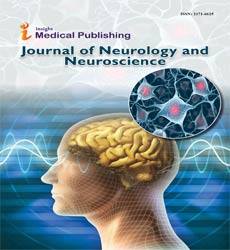Abstract
Safety of Endovascular Thrombectomy in Anticoagulated Patients with Acute Ischaemic Stroke: A Systematic Review and Meta-Analysis
Intravenous tissue plasminogen activator (IV-tPA) is first line treatment for acute ischaemic stroke (AIS). After AIS, many patients are anticoagulated, which is a contraindication to IV-tPA. Endovascular thrombectomy (EVT) provides an alternative treatment for AIS patients who have contraindications for IV-tPA. Limited data exists regarding the safety of EVT in anticoagulated patients. We aim to determine the safety of EVT in anticoagulated patients through comparing the rates of symptomatic intracranial haemorrhage (sICH) in anticoagulated and nonanticoagulated patients. Furthermore, we aim to compare differences in functional outcome and mortality after EVT in both patient groups. A meta-analysis of 10 studies was performed to assess the risk of developing sICH in anticoagulated patients who underwent EVT to treat AIS. Odds ratios and 95% confidence intervals were extracted from the studies. Meta-analysis showed no difference in the rate of sICH between anticoagulated patients and those with normal haemostasis (OR =1.21; 95% C.I.: 0.88, 1.67). Ninety-day mortality was similar among both groups. Most authors report similar rates of good functional outcome at 90-days between patient groups. EVT appears to be a safe treatment option in patients who are therapeutically anticoagulated.
Author(s):
Jake Hindmarch*
Abstract | Full-Text | PDF
Share this

Abstracted/Indexed in
- Google Scholar
- Open J Gate
- Genamics JournalSeek
- The Global Impact Factor (GIF)
- China National Knowledge Infrastructure (CNKI)
- Directory of Research Journal Indexing (DRJI)
- WorldCat
- Proquest Summons
- Scientific Journal Impact Factor
- Secret Search Engine Labs
- Euro Pub
Open Access Journals
- Aquaculture & Veterinary Science
- Chemistry & Chemical Sciences
- Clinical Sciences
- Engineering
- General Science
- Genetics & Molecular Biology
- Health Care & Nursing
- Immunology & Microbiology
- Materials Science
- Mathematics & Physics
- Medical Sciences
- Neurology & Psychiatry
- Oncology & Cancer Science
- Pharmaceutical Sciences

